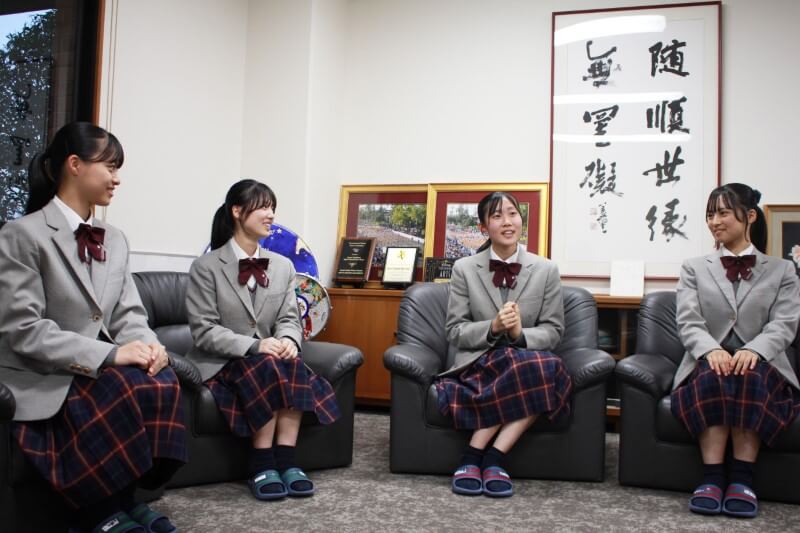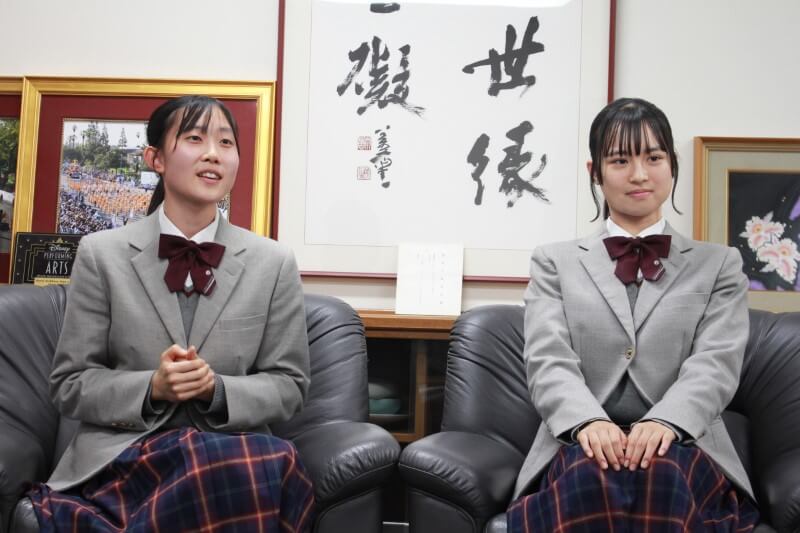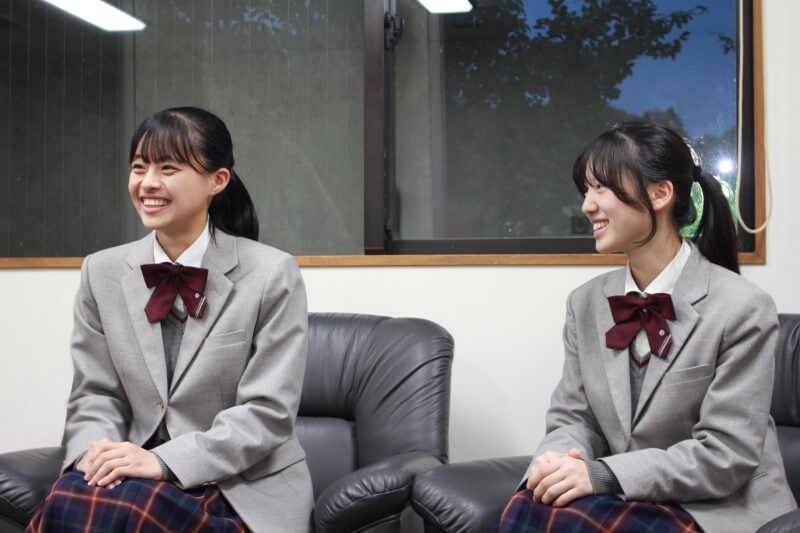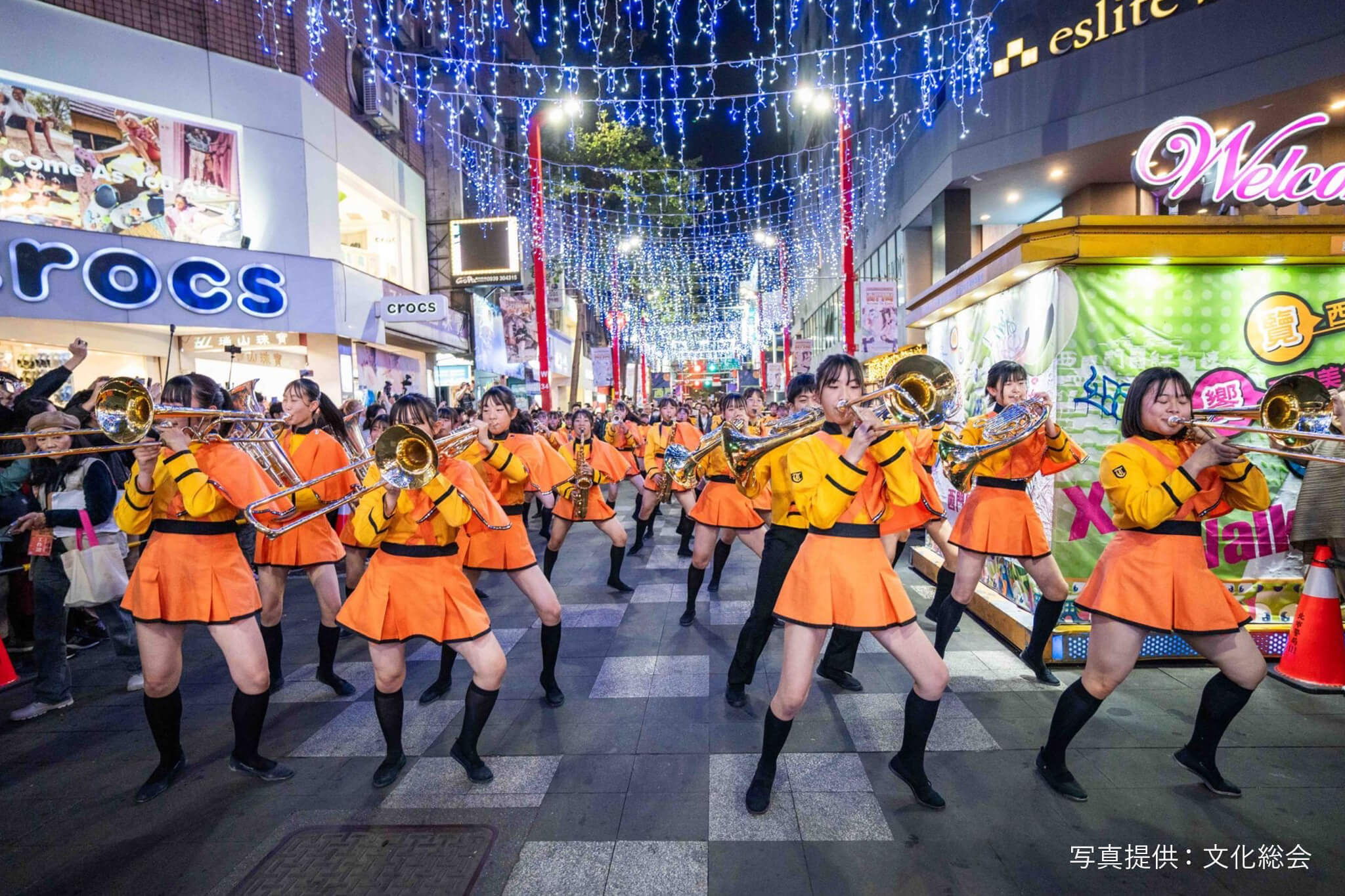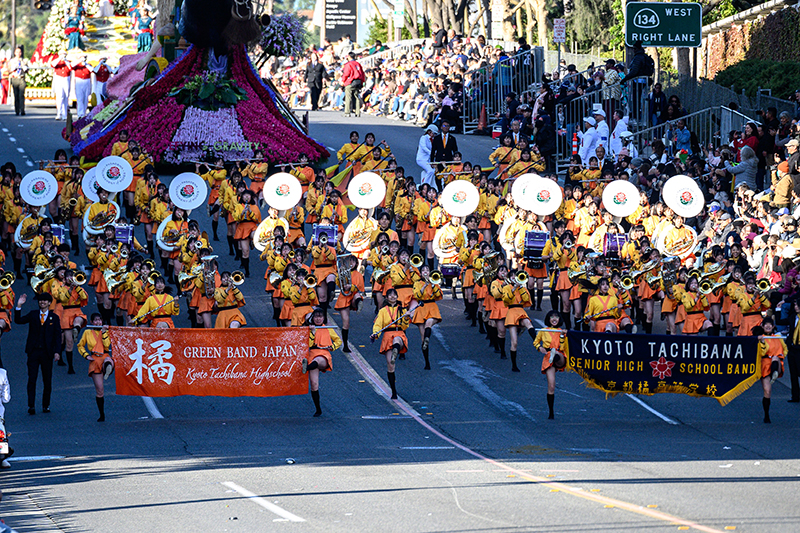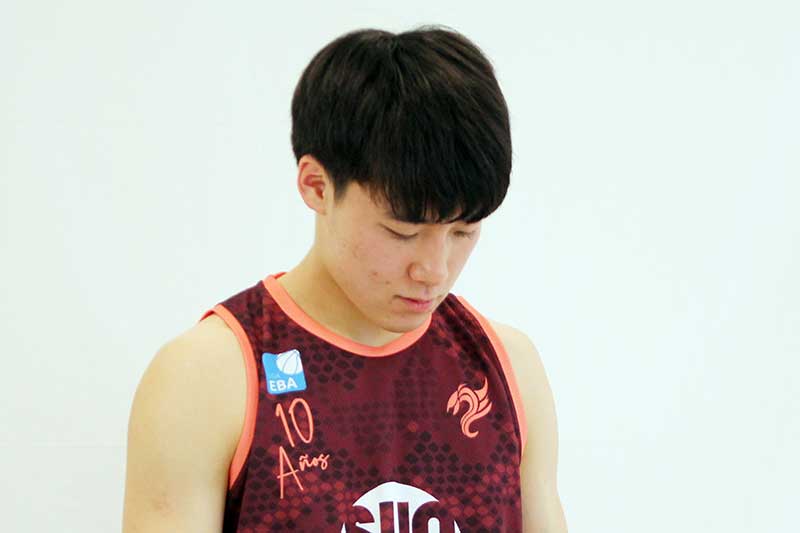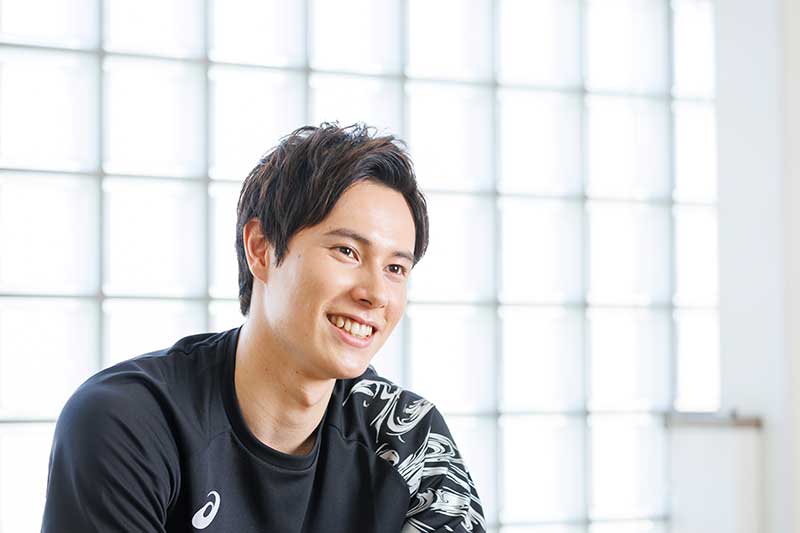Journal
サン・クロレラの取り組みや
サポートするアスリートたちのTOPICS。
Find out about Sun Chlorella's corporate activities and sponsored athletes
Kyoto Tachibana Senior High School Band
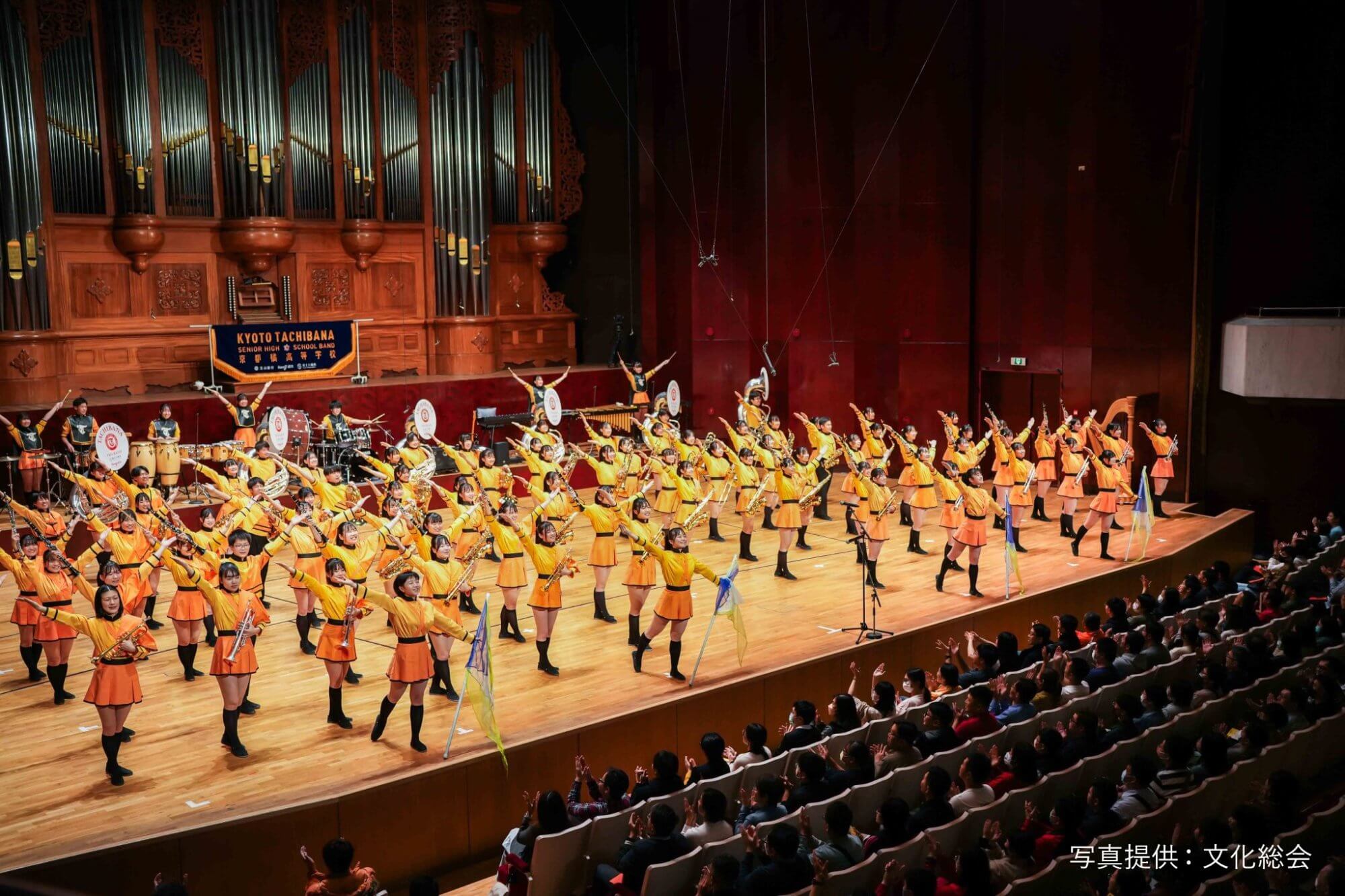
The Kyoto Tachibana Senior High School Band has inspired audiences not only in Japan but also in countries like the U.S. and Taiwan. They were selected as one of Newsweek Japan’s “100 Japanese People the World Respects” in 2023, which further increased their popularity. This year, they achieved the unprecedented feat of winning the Gold Prize in the All Japan Marching Contest for three consecutive years, a first in the history of Kyoto Tachibana Senior High. Especially for club president Nakajima and drum major Noguchi, as well as for the 120th generation band members, it became a year where they could conclude their three years of high school with such a memorable gold prize that marked a significant milestone.
In the second half we speak with club president Nakajima, drum major Noguchi, Kumagai (the next club president) and Kamata (the new drum major). They share their thoughts as they reflect on this year, their aspirations for the next year, and what they learned in the Kyoto Tachibana Senior High School Band.
Passing the baton on to the next generation band members
The 120th generation band challenged themselves to win the Gold Prize at the All Japan Marching Contest for three consecutive years and marked a historic milestone for the Kyoto Tachibana Senior High School Band. The theme for this academic year was “Reach the Peak,” which encapsulates the idea of not setting limits for oneself and striving to go further. Club president Nakajima explains that they chose this theme not only for this year but also to carry over into future years, aiming for a universal theme that would continue to resonate.
Nakajima: We wanted to perform in a way that was more polished than last year. We felt that defining limits would prevent us from growing further. So, we wanted something that would not only be about this year but one that band members of the next academic year could also relate to. We also had hopes that this band would continue to evolve in the next 10, or even 20 years, and that’s why we chose “Reach the Peak.”
Kaneshiro squinted his eyes and said, “That’s the first time I’ve heard that, and I’m glad I did.” This academic year, club president Nakajima and drum major Noguchi, who both struggled a lot, grew significantly as leaders and as individuals.
Nakajima: As Mr. Kaneshiro mentioned, we faced some challenges in the beginning of this academic year, especially in team building. However, I do feel that I was able to grow significantly because of that. I developed a wider perspective on things. Being the club president allowed me to see the band objectively, to notice even some of the smallest changes in each member.
Noguchi: I also feel that I have grown as a person. Especially as a drum major, I realized that being able to participate in performance activities and rehearsals is thanks to the support of so many people. This made me develop a greater sense of gratitude than before. I also learned the importance of smiling and being positive even through difficult times, which I believe will get in handy when I start working.
At the Kansai Marching Contest on September 23rd, the Kyoto Tachibana Senior High School Band delivered an outstanding performance that was way beyond their previous stages. Because they had struggled with team building, they were having difficulties to fully demonstrate their capabilities while their potential was always there. However, there was a sudden sense of cohesion within the team that somehow emerged after the summer season. They won the gold award, securing their spot in the national competition. Then, on November 19th, at the All Japan Marching Contest, they showcased an impressive performance that crowned them their Gold Prize for three consecutive years.
Nakajima: Kumagai has this radiant aura about her. Even when she says hi, she stands out with her brightness and positivity. I have confidence in entrusting her with the position of club president.
Noguchi: The reason I chose Kamata as the new drum major is because I got to know her well through our conversations since we played the same clarinet part. During practices, she showed exceptional observation skills and was able to notice things about her band members with objectivity. Even when I was absent, she helped me a lot throughout the year.
Inspired by these words from their seniors, the two new leaders shared their current feelings and aspirations for the next academic year.
Kumagai: I’ve been watching Nakajima-san lead the club as the club president all the time. So, when I was appointed, I felt more anxiety and pressure about whether I could really do it. But after a while, I began to feel a desire to do my best in my own way. It’s a challenging role, which means that I would have plenty of room for growth, and I’m determined to do well.
Kamata: I was also initially filled with anxiety, but above all, I feel honored to lead the band as the drum major for the Rose Parade next year, and I’m looking forward to it.
Things that held more value than three consecutive golds
The 120th generation of the Kyoto Tachibana Senior High School Band initially struggled with team building in the beginning. However, they gradually began to show harmony around the end of summer and started to demonstrate outstanding performances that were not at all inferior to those of previous years. After winning the gold prize at the Kansai Marching Contest in September, they achieved the remarkable feat of winning the Gold Prize for the third consecutive year at the All Japan Marching Contest held on November 19th. We ask each of them about their true feelings at the time.
Nakajima: To be honest, I didn’t feel much pressure. Instead, I was focused on performing at a level that exceeded last year’s performance as the club president of the 120th generation. However, when we received the Gold Prize, I naturally had tears in my eyes because I was so overjoyed. At the beginning of the year, we struggled to achieve the kind of performance we wanted, and there were many difficult moments. I’m really glad that we didn’t give up and made it this far.
Noguchi: I truly enjoyed being able to perform in front of a large audience, and I performed with the thought of wanting them to enjoy our music as well. I believe that we were able to achieve it because of all the support we received from so many people. And us seniors were able to finish our three years of high school with a Gold Prize at the All Japan Marching Contest. I’m really proud of that.
Kumagai: For me, the joy of being able to perform music on such a big stage outweighed any nervousness or pressure. I approached the performance with confidence, believing in everything we had done up to that point. As the next club president, I definitely want to come back to Osaka-Jo Hall and win the Gold Prize again.
Kamata: To be honest, I felt pressure. When I was in junior high, I couldn’t advance to the national competition, so maybe my desire to advance to the national competition was stronger than anyone else’s. But now, I’m filled with a sense of achievement and fulfillment because I was finally able to win the Gold Prize at a national competition. Those six minutes were the happiest moments for me out of all the performances I was a part of.
Though their thoughts varied, they all spoke with brightness, joy, and energy. These qualities are what makes members of the Kyoto Tachibana Senior High School Band unique, and perhaps their tradition of carrying a sense of positivity was the secret to their strength in achieving the Gold Prize for three consecutive years.
Thoughts on having fans in Taiwan and around the world
There are many international fans of the Kyoto Tachibana Senior High School Band. There are not only comments in Japanese but also in English, Chinese, and other languages under their YouTube clips. After their tour in Taiwan, they received numerous offers including the invitation to participate in the Rose Parade in the U.S. It is quite rare for a high school extracurricular activity to gain this much attention. How do the four members feel about receiving offers from around the world?
Nakajima: Opportunities to go abroad through our activities are incredibly valuable, and I’m just really happy about it. We always strive to deliver performances that give energy to everyone, but in return, we also receive energy from them.
Noguchi: Traveling abroad and getting to know cultures other than Japan are experiences that will be useful in our lives, and above all, it’s really fun. It’s also great to make friends there who we can still keep in touch with. Even if we can’t communicate through words, we always feel that music transcends language barriers.
Kumagai: For me, being able to go abroad through Kyoto Tachibana Senior High’s club activities and having more opportunities to interact with people in different countries has increased my motivation to study English.
Noguchi: When I see comments of people from different countries on YouTube and social media, it makes me really happy to realize that even people who are far away know about the Kyoto Tachibana Senior High School Band and support us.
The band members continue to maintain relationships with the local high school students in Taiwan whom they performed with. The students in Taiwan continue to show their care towards them in ways like sending them presents, such as when they were selected as one of Newsweek Japan’s “100 Japanese People the World Respects”. These experiences have had various impacts on the band members, broadening their perspectives and giving them motivation outside of the realm of music, which would then inspire their future dreams after graduation.
Nakajima: Originally, I wanted to become a nurse, but after going to Taiwan, I became interested in becoming a nurse or a medical professional who can work not only in Japan but internationally.
Kamata: My dream is to become a flight attendant. When I flew on a plane during our performance in Taiwan last year, I thought it would be nice to have a job that allows me to interact with people from around the world through work.
Kumagai: I aspire to become a lawyer. I’m choosing this path because I believe that lawyers have many opportunities to understand people’s concerns through communication. I have always enjoyed talking and connecting with people, so I want to help those in need by becoming a lawyer.
Noguchi: Although it’s not about going to other countries, I’ve always wanted to become a junior high school teacher. Many children encounter wind music in junior high. I want to be a music teacher for kids who would be playing wind instruments for the first time, and my dream is to eventually become an instructor like Mr. Kaneshiro.
Then Nakajima asks Kaneshiro, “Why did you become a teacher?” Kaneshiro pauses for a moment, carefully chooses his words, and begins to speak.
Kaneshiro: After I graduated college, I went to Germany to pursue playing the trumpet, but things didn’t go well for me. It was expensive to study abroad, and I ran out of money. But the main reason is the moment when I went to a concert in Germany and suddenly thought, “Are music performed by professional musicians only available for those who can afford to attend professional concerts?” And then I thought that if I became a schoolteacher, maybe I could convey the beauty of music to children who may not even be interested in music. That’s why I decided to become a music teacher. I took the teacher certification exam as soon as I returned to Japan. I still don’t think that I’m fit to be a teacher, though.
Kaneshiro confesses that he usually does not share things that are personal. This interview might have become a valuable opportunity for the students to get to know him.
Messages for aspiring junior high school students
Nakajima: The best thing about being in a wind ensemble is the enjoyment. Things that you can only experience in this club. Being invited to perform on various stages and travelling to new places to play music. The fun part is the best. And there are plenty of lessons and moments of realization, allowing for personal growth. So please, everyone, consider joining!
Noguchi: By joining the Kyoto Tachibana Senior High School Band, you’ll meet friends with whom you can share joy and overcome challenges together. And there’s also Kaneshiro-sensei, who teaches us the beauty of music. I believe that it will definitely be a fulfilling three years, so I really hope you’ll join.
Kumagai: Both in terms of skills and personal development, it will contribute to your growth. Let’s enjoy music together.
Kamata: I was itching to enroll in Kyoto Tachibana Senior High School when I was in junior high, and now that I’m actually a student here, I can genuinely say it was the best decision I’ve ever made. It’s the perfect environment to dedicate your youth to the music you love. That’s what the Kyoto Tachibana wind ensemble club is all about!
Kaneshiro often mentions about how one’s human qualities are reflected in their music. If the 120th generation band were likened to an individual, music played by their character might be one with cheerful melodies, lively rhythms, bright tones, but with subtle dissonances that add depth to their performance. Just as there is no rain that doesn’t stop, there is no night that doesn’t end. And just as Kaneshiro expressed, “after the rain, the ground hardens,” at some point, rain will cease to fall and however long the night, a beautiful sky filled with orange will spread along the horizon. As if to encourage us that a new, bright tomorrow is all that we need to believe in.
